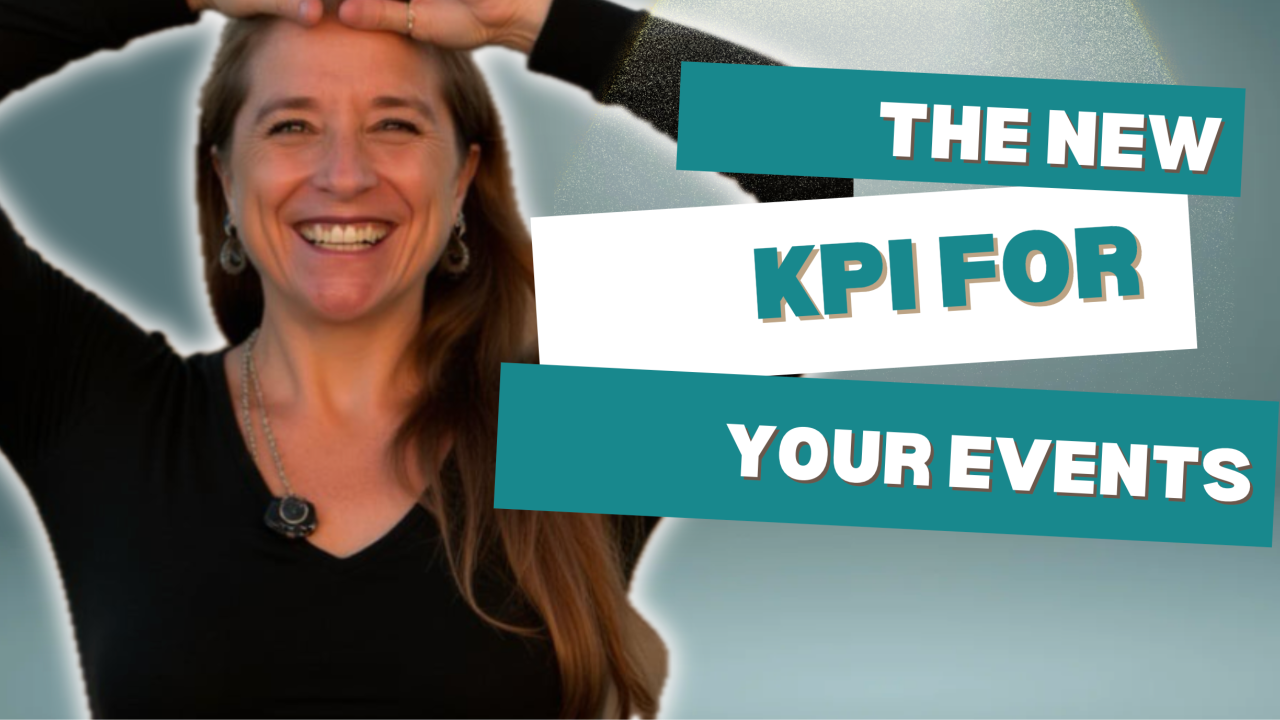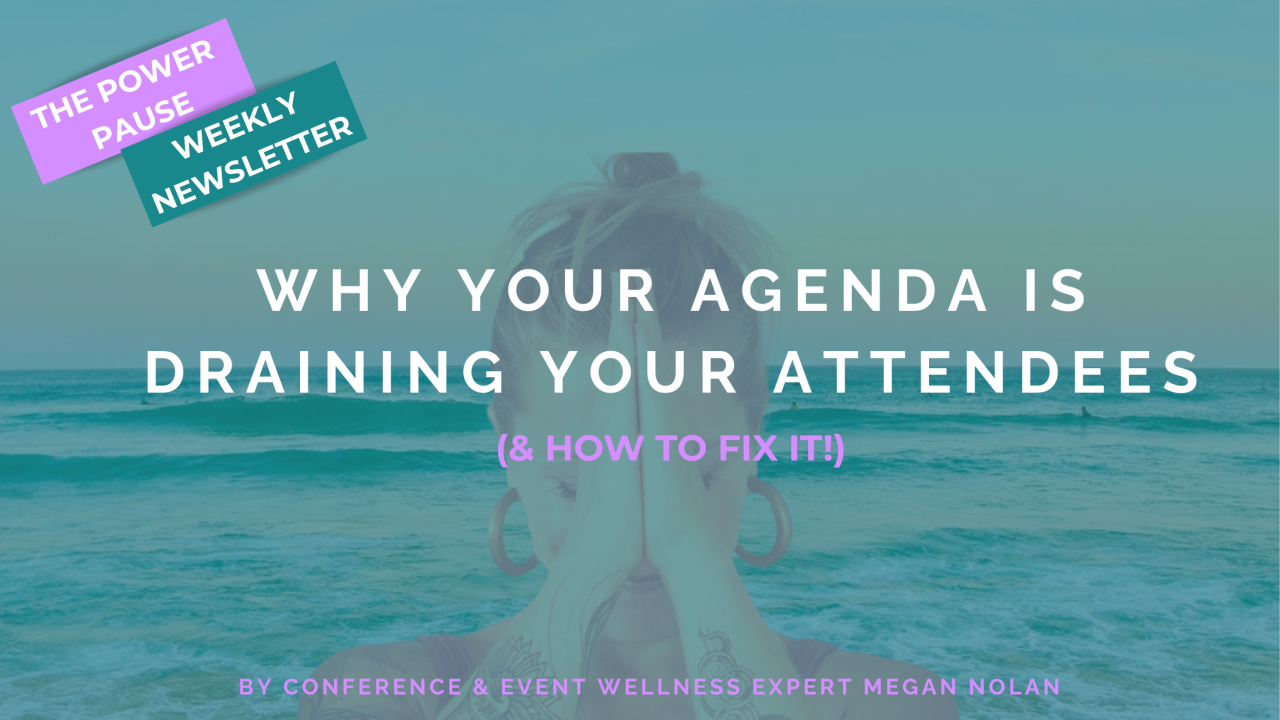Is the nagging pain in your neck and back distracting you and draining your energy?
Press PAUSE on your busy life with this free 10 minute "Yoga at My Desk" video to instantly feel better!

What if the smallest daily habit could be the one that helps you feel calmer, sleep better, think more clearly, and handle stress with more steadiness?
Not a productivity hack.
Not another thing on your to-do list.
Just one tiny, intentional daily practice.
For me, that habit is gratitude.
And not the fluffy, surface-level kind but the grounded, nervous-system-based practice that quite literally helped me take off what I once called the heavy cloak of sadness.
Today, it’s one of the core tools I teach in my work with leaders, teams, and high-pressure environments like corporate events and conferences.
Learn more in this week's mini training video:
<iframe width="560" height="315" src="https://www.youtube.com/embed/piIMFPlId-8?si=PZp3OQ-Ti1kSQ8QA" title="YouTube video player" frameborder="0" allow="accelerometer; autoplay; clipboard-write; encrypted-media; gyroscope; picture-in-picture; web-share" referrerpolicy="strict-origin-when-cross-origin" allowfullscreen></iframe>

When people fly across the ocean to attend an event here in Maui Hawai'i, they’re not coming for another overloaded agenda that leaves them drained. They’re coming for clarity, connection, creativity and the feeling of being fully present in paradise.
But even in Maui, attendees hit that familiar wall of overwhelm. Why?
Because when there’s too much to take in, the brain tunes out. 🧠
I dive deeper into this in the video below, where I break down the neuroscience of overload and how to fix it for your next event (here on Maui or anywhere in the world).
<iframe width="560" height="315" src="https://www.youtube.com/embed/jamb4ZmouS8?si=ARTfNBxmxWzMuMNc" title="YouTube video player" frameborder="0" allow="accelerometer; autoplay; clipboard-write; encrypted-media; gyroscope; picture-in-picture; web-share" referrerpolicy="strict-origin-when-cross-origin" allowfullscreen></iframe>
Maui offers a naturally inspiring backdrop: ocean air, tropi...

Our brains are wired for rhythm natural 90-minute focus cycles followed by dips where energy, retention, and engagement plummet.
When event agendas ignore those biological patterns and keep people sitting still, attention crashes, creativity fades, and connection disappears.
The solution isn’t another keynote or coffee break, it’s movement.
✨ A three-minute movement reset can boost focus by up to 30%.
✨ It re-engages the body, sharpens the mind, and strengthens connection.
✨ It transforms your event from a passive experience into an energized, memorable one.
That’s why the most successful conferences and corporate meetings are now being designed around human energy, not just time slots.
As an event wellness strategist, I help event leaders and organizations design and deliver energy-smart experiences that align with how people actually ...

It’s a moment every speaker, emcee, or event producer dreads and often misreads. We assume the speaker needs to be more dynamic, the slides more engaging, or the content more entertaining.
But more often than not, it’s not a content problem at all.
It’s a physiology problem.
We’ve been conditioned to believe that longer breaks, stronger coffee, or more interactive panels will solve audience disengagement.
But here’s the truth: when the nervous system is depleted, no amount of caffeine or clever programming can bring the room back online.
What the body really needs is movement.
That’s why I’ve been invited to join The Emcee Summit on November 12 (1–4 pm ET) to guide a short Power Pause and help event leaders experience what a 3-minute movement reset can do for focus, presence, and memory retention.
Because let’s be real: even the best...

In today’s event world, wellness has become a buzzword. You can Google "conference wellness ideas," scroll LinkedIn for 3-minute energizers, or even hire a yoga teacher for the morning.
But here’s the hard truth: if your attendees are zoning out by 2pm, your wellness strategy isn’t working.
In this blog, I’ll walk you through how I help event planners move beyond check-the-box wellness moments and design full-day experiences that keep attendees energized, engaged, and fully present. It’s all grounded in my proprietary Event Energy Mapping Flow and the Power Pause Method: science-backed strategies that support both brain and body.
Why Most Conference Wellness Ideas Fall Short
Let’s say a planner comes to me and says:
"We want to integrate wellness into our event in a way that actually improves the experience and our feedback scores."
They’ve probably already tried:
Early morning yoga or 5K fun runs
A mocktail happy hour
More fruit or herbal tea options on the snac...

Event organizers spend months perfecting agendas, securing speakers, and curating experiences.
But there’s one system most forget to design for the nervous system.
And that oversight?
It might be quietly sabotaging your engagement, feedback scores, and ROI.
🧠 In my latest YouTube video, I share 4 powerful questions every event planner should ask to ensure their event supports attendees not just logistically, but biologically.
Because here’s the truth:
If your attendees are zoning out, checking their phones, or vanishing after lunch… it’s not a content problem.
It’s a nervous system problem.
🎥 Click here to watch the video now
This is the shift that turns events from exhausting to energizing.
From forgettable to unforgettable.
👉 Ready to rethink how you design your next event? Let's chat!

Most events end with fatigue and faded attention. But what if your attendees left brighter than they arrived- more alive, more engaged, and ready to implement every insight you shared with them?
Energizing an event starts long before the agenda begins; it starts with designing intentional moments that spark connection and renewal.
Which is exactly what Anders Boulanger's and I chatted about on his Engaging Personalities Podcast recently!
Watch here
Listen here

You can have world-class speakers.
A flawless agenda.
And still watch your audience check out.
If you've ever glanced across a ballroom after lunch and seen people slowly melting into their chairs, you know the moment. The one where your audience becomes one with the furniture. Phones start glowing. Eyes get glassy.
It’s not that your content isn’t great, it’s that the human brain (and body) wasn’t built for eight hours of sitting and being talked at.
Most Maui event planners think the issue is content overload.
"We just packed too much into the day."
So they try to shave down slide decks or swap panels for keynotes. But the truth is: it’s not how much you share, it’s the state people are in when they receive it.
At conferences and corporate events in Maui, Hawaii, where people are surrounded by natural beauty, sunshine, and the call of the ocean, it’s even more important to design experiences that align with how humans actually thrive.
Behind the scenes, what’s really happening ...

It’s a simple question that changes everything about how we design events.
In a world overflowing with sessions, slides, and schedules, what truly moves people isn’t information, it’s emotion.
When experiences are built around connection, energy, and emotion (not just content), people feel the difference. They remember the moments their eyes lit up not the bullet points on the slides.
That’s why the new KPI for events isn’t attendance or applause.
It’s ELU: Eyes Lighting Up.
Because what attendees remember most is how you made them feel.
👉 Watch the LinkedIn episode here to discover why ELU is reshaping the future of event design and how small shifts in energy can create big, lasting impact.

You packed the agenda. You booked the speakers. You added morning yoga.
But by 2PM... your attendees are checked out.
Phones come out. Eyes glaze over. The buzz in the room disappears.
And that keynote you spent weeks planning? Barely lands.
This isn’t a motivation problem. It’s a biology problem.
Most event planners believe the biggest challenge is time:
“We just don’t have time for wellness.”
But here’s what I’ve seen after 20 years in the wellness world:
Time isn’t the issue. It’s how the day is designed.
Too often, wellness is an afterthought—something squeezed in at the end, or slapped on as a token yoga session in the morning. Meanwhile, attendees sit for 6+ hours, barely moving.
That’s not wellness. That’s a slow burn into disengagement.
The real issue? We’re designing events for how things have always been done.
Even though the research is clear:
The brain can only focus f...

Press PAUSE on your busy life with this free 10 minute "Yoga at My Desk" video to instantly feel better!